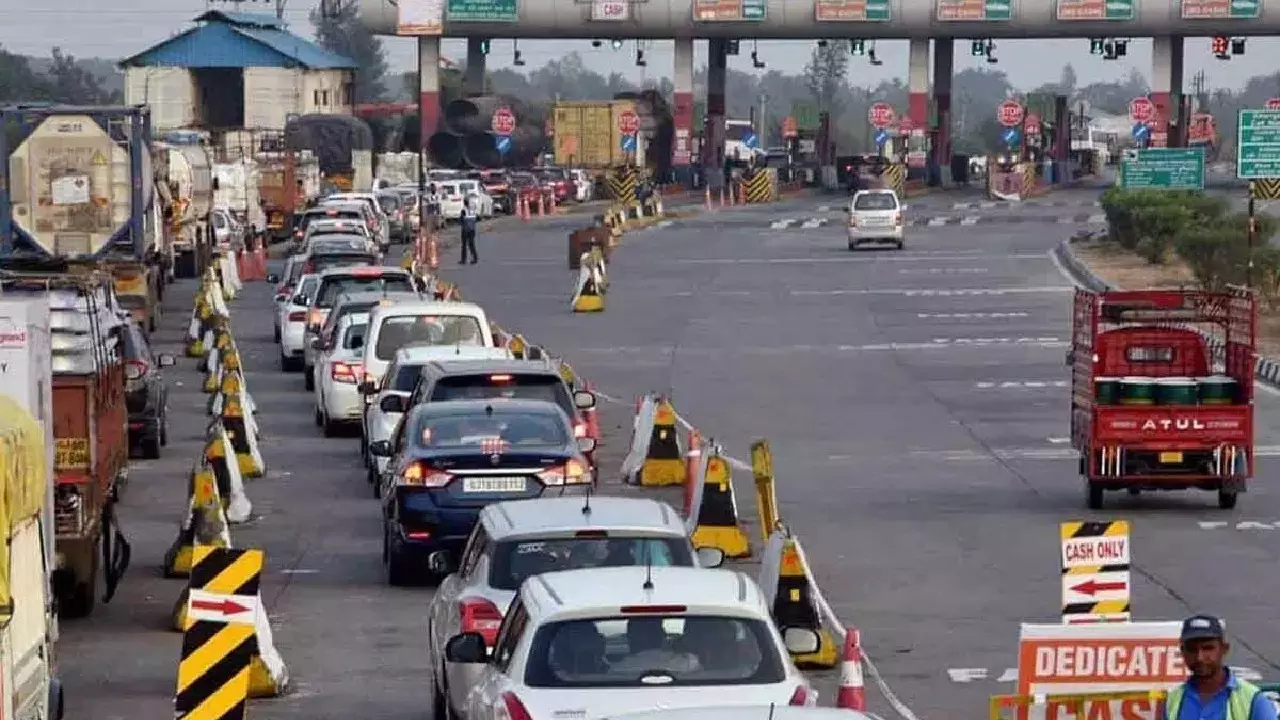New Toll Charges in Andhra Pradesh: Increased Fees Spark Public Outrage
Explore the impact of increased toll fees in Andhra Pradesh, with revised single-entry charges at 65 toll plazas. Learn about the financial burden on commuters and public backlash over FASTag deductions and lack of transparency
New Toll Charges in Andhra Pradesh: Increased Fees Spark Public Outrage

Andhra Pradesh’s latest toll fee revisions have sparked widespread discontent among commuters, as single-entry charges are now enforced across all toll gates in the state. These new rules, effective since October, have significantly increased the financial burden on the public, with 65 toll plazas implementing the revised charges.
Increased Burden on Commuters
Commuters traveling on Andhra Pradesh’s national highways are facing exorbitant toll fees under the revised system. The introduction of single-entry charges has eliminated the previously available relief for return journeys made within 24 hours. For instance, the toll plaza at Pedakakani-Kaja on the Vijayawada-Guntur highway now charges ₹160 for a single journey, whereas earlier, a return trip within a day would have cost only half that amount.
The situation is particularly challenging for thousands of employees commuting daily between Vijayawada and Guntur. The revised toll fees have added a considerable strain on their monthly expenses. Many are expressing frustration over the lack of transparency in toll collections, especially with the use of FASTag, which deducts fees automatically without clearly indicating the revised rates.
Transition to New Toll Rates
The fee hike comes as the operational tenure for many national highways built under the Build-Operate-Transfer (BOT) model has expired. Under the new rules introduced by the central government, vehicles must now pay full toll fees for each one-way journey, regardless of the number of trips made within 24 hours. This policy has been implemented across 65 of Andhra Pradesh’s 69 toll plazas.
Previously, the toll structure allowed for reduced fees for return trips within a 24-hour period. For example, cars paid ₹160 for a one-way journey and ₹80 for a return trip within the same day. However, this concession has been removed, resulting in commuters paying full fees for each trip.
Limited Exceptions
Not all toll plazas in Andhra Pradesh have adopted the new pricing model. On the Nellore-Chennai highway, four toll plazas—including Venkatachalam, Boodaram, and Sullurpet—continue to operate under the old system. These plazas, constructed more recently, have a BOT deadline extending until 2031, allowing them to maintain the previous toll collection method.
Public Backlash and Calls for Transparency
The revised toll policy has triggered widespread criticism. Commuters accuse authorities of implementing the changes without adequate public communication. Many are demanding clarity on FASTag deductions and question the rationale behind the steep hikes. The lack of updates or notifications about the changes has further fueled public outrage.
Conclusion
As Andhra Pradesh’s highways transition to the new toll regime, the financial impact on daily commuters cannot be understated. The increased fees underscore the need for better communication and transparency in toll collection practices. Without these measures, public dissatisfaction is likely to grow, making it imperative for authorities to address these concerns promptly.

